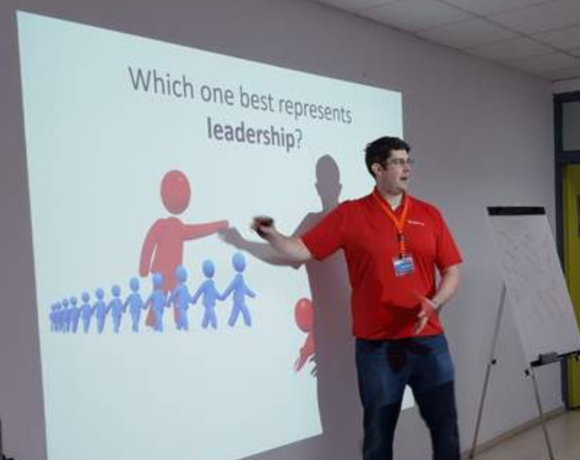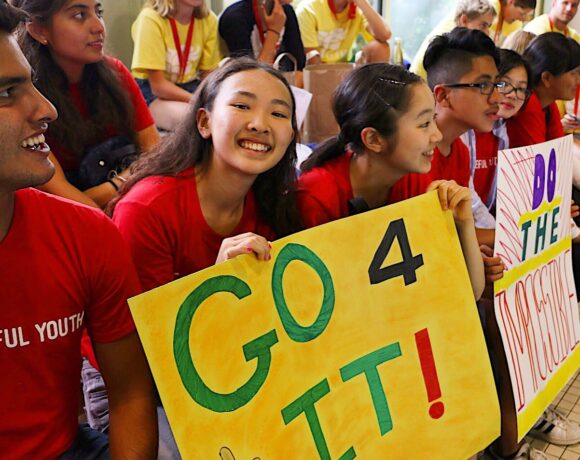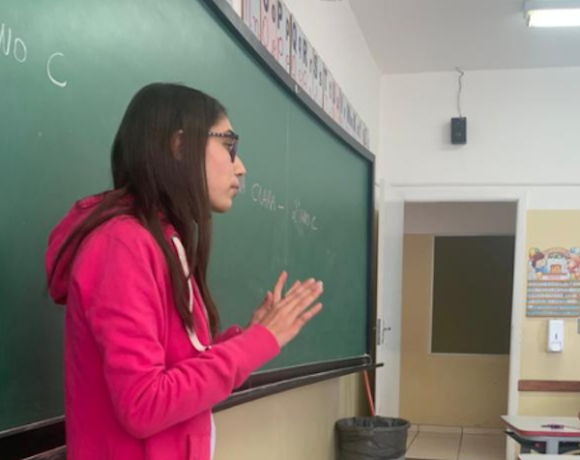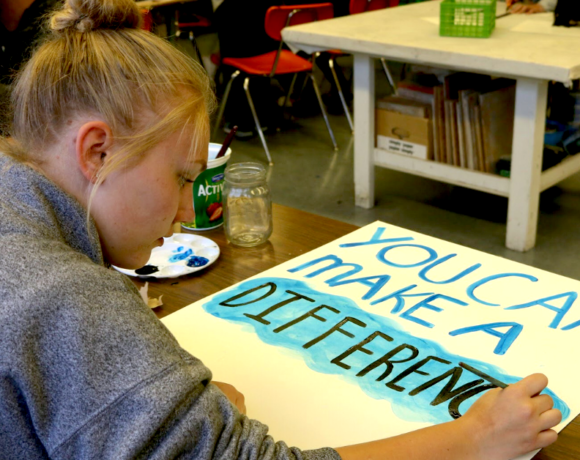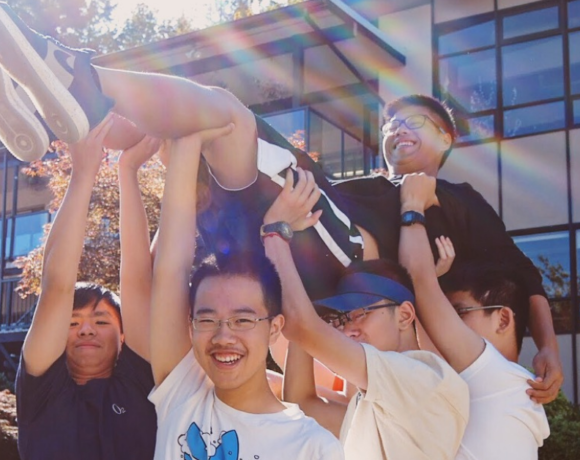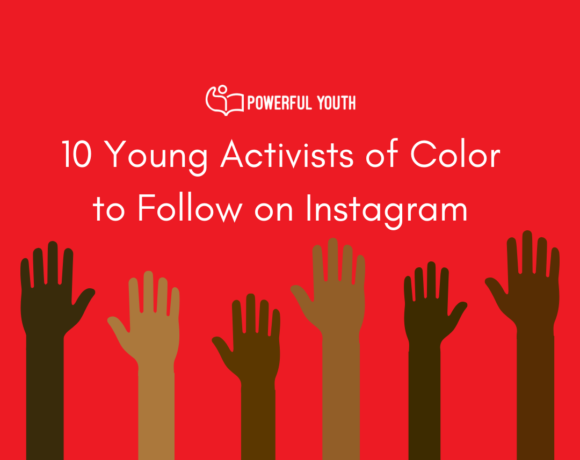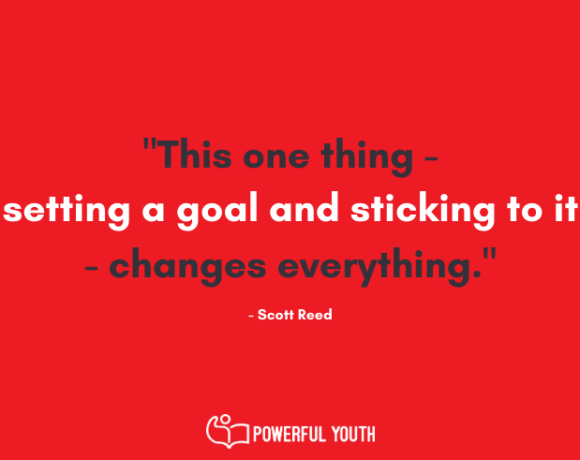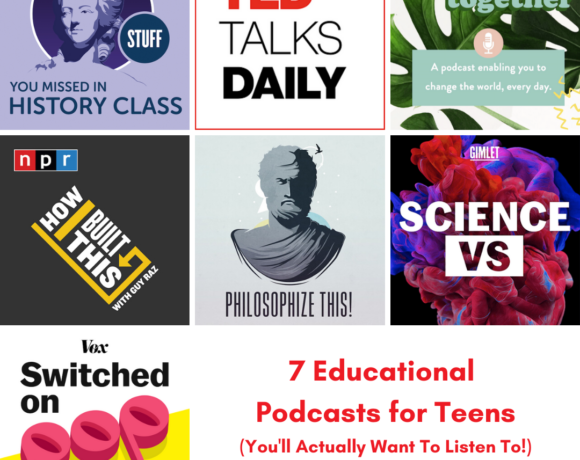Preparing Youth for Leadership
Powerful Youth Co-Founder David Charron’s Insights for Educators
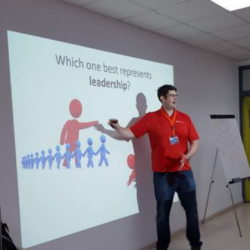 Recently, Powerful Youth co-founder David Charron engaged in a live online Fireside Chat with Educate Online Global. One of the primary topics they delved into was how educators today can support the development of youth leaders poised to thrive in a rapidly changing future. What strategies can educators employ to foster leadership skills in their students? How can they best prepare youth for future leadership roles? Read on for some of the insights David Charron shared, or watch the full Fireside Chat on YouTube.
Recently, Powerful Youth co-founder David Charron engaged in a live online Fireside Chat with Educate Online Global. One of the primary topics they delved into was how educators today can support the development of youth leaders poised to thrive in a rapidly changing future. What strategies can educators employ to foster leadership skills in their students? How can they best prepare youth for future leadership roles? Read on for some of the insights David Charron shared, or watch the full Fireside Chat on YouTube.
Make it Experiential
As educators, it’s crucial to ready our students for leadership roles, and integrating experiential learning into our teaching methods is one of the most effective approaches. David observed that the school experience often diverges from real-world scenarios: “A lot of education is based on that white sheet of paper and that worksheet and that word problem and that fill-in-the-blank. But life gives you no paper and no pen and says ‘go, go, go’!” By fostering a supportive environment, our students can embrace risks and confront challenges within their education, gaining both skills and confidence along the way.
Prioritize Engagement and Understanding
In a world full of distractions for young people, engagement is an increasingly critical metric for educators to prioritize. “We have a serious focus on engagement and even on entertainment, because we have to contend with the competing messages of social media content,” noted David. Without engaging students effectively, the value of what we teach diminishes.
Moreover, it’s important to assess not only students’ engagement but also their comprehension and what they are taking away from the activity. “It doesn’t matter how great the lesson plan is; all that matters is who’s in the seats and how they’re receiving the information and how they’re taking in the experience.” Thus, checking our egos at the door, avoiding assumptions, and prioritizing the student experience are essential lessons for educators to learn!
Have Empathy, Don’t Just Teach It
Empathy isn’t merely a crucial skill for young leaders to cultivate; it’s also a prerequisite for educators. “At the end of the day, you have to build as much empathy into your education as you possibly can.” This entails viewing activities and lessons from the student’s perspective, as well as constantly seeking feedback to ensure deeper understanding. “In our Powerful Youth programs, we use various methods to check in on what they are getting out of the experience because we can’t spoon-feed leadership to someone.” Prioritizing feedback as part of the leadership learning process is indispensable: “You have to really take that time and that deliberate effort to get feedback from your audience.”
Develop Out Their Communication Skills
Communication skills consistently top the list of what employers cite as lacking in recent graduates, even MBA graduates. David explained that he feels the reason for this is many of the more technical skills are easy to teach, but something like communication is essential in every interaction, in every job, but it’s something that takes years to develop. It’s also something many people are not confident with or have enough experience with!
“That’s why with our Global Leadership Academy for youth,” says David, “every single day we’re always putting them in scenarios and situations where the students have to communicate in different ways, whether a traditional presentation, in a small group, under pressure, or out with the public. It’s in real time; sometimes they get time to rehearse and other times they just don’t. That’s real life! All that experience means they become more and more comfortable with communicating at any given moment, with anyone.”
By providing your students with lots of opportunities to practice their communication skills in new and challenging scenarios, you help them build up their experience and confidence early on. You also support them in discovering their unique strengths and weaknesses as communicators so they can work on developing their skills before they enter the workforce.
Get Them Out of Their Comfort Zone
Pushing students beyond their comfort zones, while still providing a safe, supportive environment, is one of the most impactful things we can do to develop young leaders according to David Charron. “This isn’t learning for the sake of learning, which has its place and that’s wonderful! But for leadership, you’re getting them outside their comfort zones and you’re doing that because you’re trying to expand their options and therefore up their percentage of success in whatever endeavors they will try to get into.”
David gives the example of public speaking, one of the most widespread fears individuals hold. It doesn’t matter what you want to accomplish, “at some point you’re going have to be heard and understood.” Overcoming fears and developing core leadership skills early means young leaders have more time and energy to put towards other important learning later on!
Using the power of experience-based learning, Powerful Youth is an award winning social enterprise dedicated to providing the best leadership training for youth world wide, helping them uncover purpose, fueled by their passions, to create positive and lasting change in themselves and their communities.
Want to learn more about our experiential leadership programs for international youth ages 12-18?


